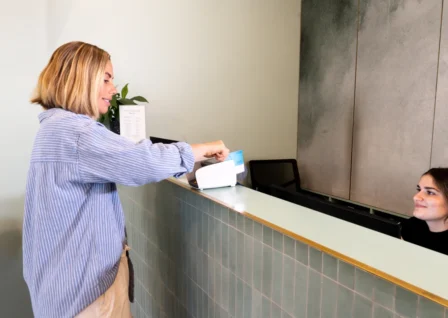No more card surcharges? How Australian healthcare providers can prepare

30 April 2025 - 5 min read
Business Strategies

Written by Pete Williams, CTO Tyro Health at Tyro Payments
Following on from our last article, Direct Debit and Beyond: Rethinking Payment Collection for Support at Home, where we talked about how Direct Debit and its inefficiencies—especially around dishonours, delays, and compliance—are being increasingly difficult to justify in a digital-first environment, this article looks at modern alternatives and how aged care providers can future proof their payments strategy.
Given the challenges of traditional Direct Debit, many forward-thinking aged care providers and software vendors are exploring smarter, more efficient alternatives. These modern solutions offer real-time processing, enhanced visibility, and a better experience for both providers and care recipients.
Pros:
Cons:
Pros:
Cons:
Pros:
Cons:
PayTo is a modern, real-time alternative to Direct Debit, powered by the New Payments Platform (NPP), Australia’s real time payments infrastructure. It enables care recipients to pre-authorise payments directly from their bank account, with full visibility and control.
PayTo is live and supported by most major Australian banks, with account enablement reaching near ubiquity. Merchant adoption and payer awareness is growing steadily—and the infrastructure is ready.
Key advantages:
Card on File and PayTo aren’t just alternatives—they’re upgrades. Together, they offer:
As the aged care sector faces growing demands and regulatory changes, now is the time to evolve your payment strategy and reduce friction across the board.
When reassessing your approach to care recipient contributions, it’s important to look beyond immediate functionality and consider long-term viability, operational efficiency, and client experience.
Some things to keep in mind:
Direct Debit has long played a role in aged care, but its inefficiencies—especially around dishonours, delays, and compliance—are becoming increasingly difficult to justify in a digital-first environment. With the BECS system scheduled for decommissioning, it’s not a matter of if you need to modernise—but when.
Modern alternatives like Card on File and PayTo offer real-time processing, better payer visibility, reduced failure rates, and far less administrative burden. They’re not just payment options—they’re foundational tools for future-ready care.
To help providers navigate this transition, Tyro Health will seamlessly integrate with the Support at Home framework, enabling aged care providers to process Support at Home claims and manage participant contribution payments with ease. If you’re an aged care service provider or software developer interested in learning more about our integrated solution, please register your interest here.
Disclaimers
Tyro Health provides this article for general information and educational purposes and does not take into account the financial situation or need of any reader. The information provided must not be relied upon as legal, tax or financial advice.
You may also like
No more card surcharges? How Australian healthcare providers can prepare

Beyond Direct Debit: Rethinking Payment Collection for Support at Home

Navigating Support from Home – Building an Effective Solution: Requirements for Software and Systems

Navigating Support from Home – Understanding Care Recipient Contributions Under Support at Home
